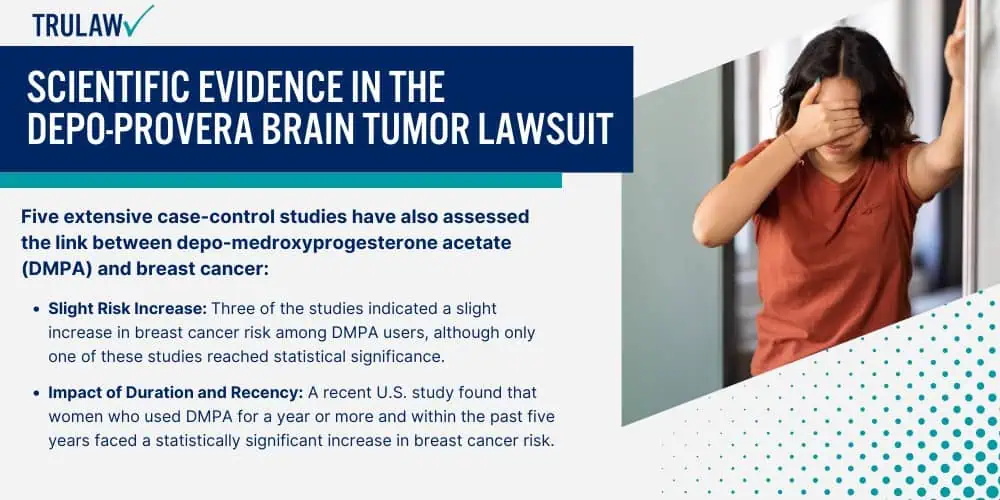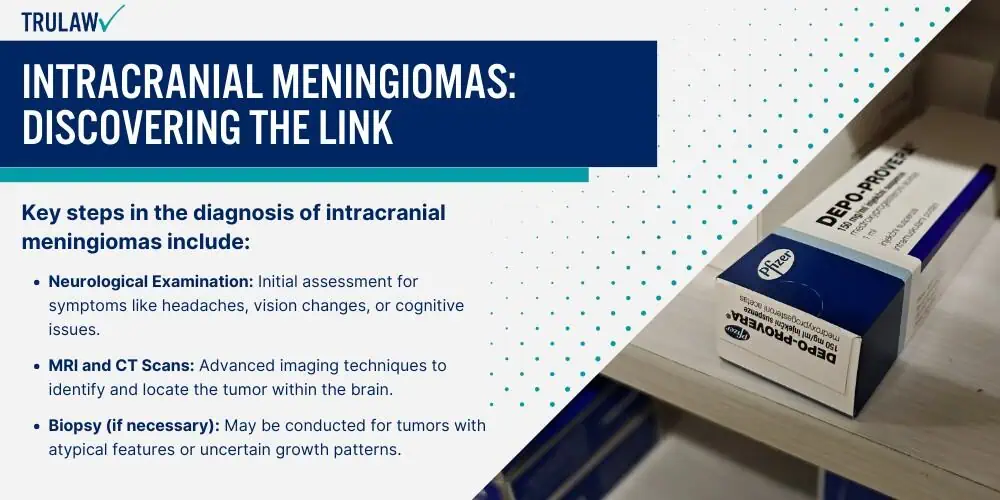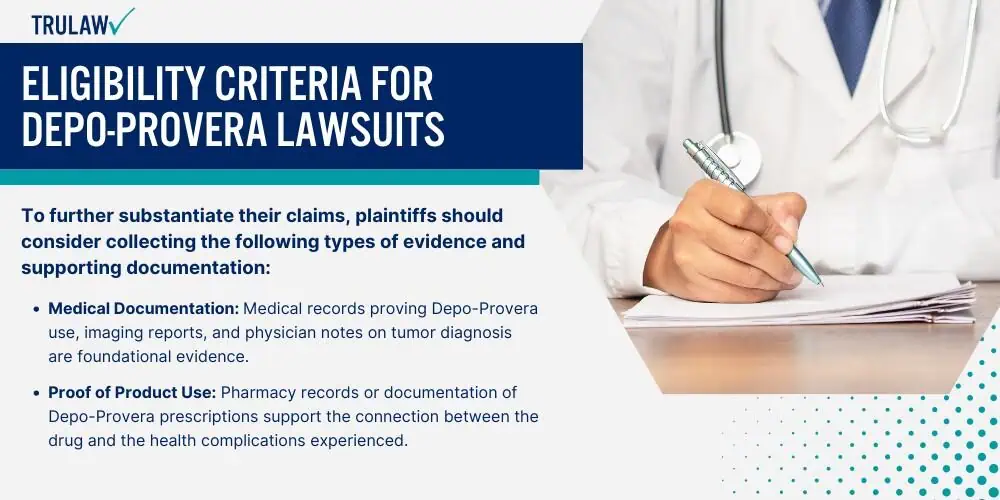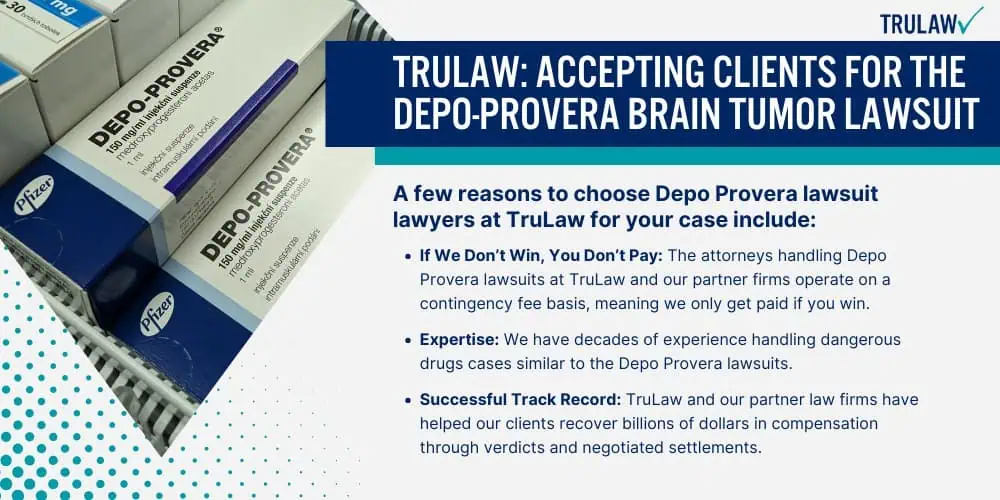Meningiomas are typically benign but can cause significant health issues due to their location, potentially leading to symptoms such as headaches, thickening cervical mucus, and seizures.
The study also notes that other hormonal treatments containing progestogens, like medrogestone and promegestone, were associated with increased risks.

Research Findings on Brain Tumor Correlation Risks
Scientific research has identified a significant link between prolonged Depo-Provera use and an increased likelihood of developing intracranial meningiomas.
A recent study of 18,061 women who had undergone surgery for meningiomas compared with over 90,000 control subjects found that prolonged use of Depo-Provera was associated with a 5.6-fold higher likelihood of developing meningiomas brain tumors.
The risk was markedly higher among women over the age of 65 who had used Depo-Provera continuously for three or more years.
In response to these findings, Pfizer has started updating the product labels and patient information to include warnings about the possible risk of meningiomas associated with long-term use.
Plaintiffs, however, argue that these updates came too late for many who were already exposed to the risk without sufficient warning at the onset of treatment.
Research on Depo-Provera and Breast Cancer Risk
Research on Depo-Provera’s association with breast cancer has yielded mixed results, with some studies indicating a potential increase in breast cancer risk for specific user groups.
Five extensive case-control studies have also assessed the link between depo-medroxyprogesterone acetate (DMPA) and breast cancer:
- Slight Risk Increase: Three of the studies indicated a slight increase in breast cancer risk among DMPA users, although only one of these studies reached statistical significance.
- Impact of Duration and Recency: A recent U.S. study found that women who used DMPA for a year or more and within the past five years faced a statistically significant increase in breast cancer risk.
- Consistency Across Studies: This recent finding aligns with previous research suggesting an increased risk for recent users with prolonged exposure to DMPA.
These findings highlight the importance of evaluating individual breast cancer risk factors, including family history when considering Depo-Provera as a contraceptive method.
The studies underscore the necessity for informed discussions between patients and healthcare providers to weigh the benefits of Depo-Provera use against potential long-term health risks.






